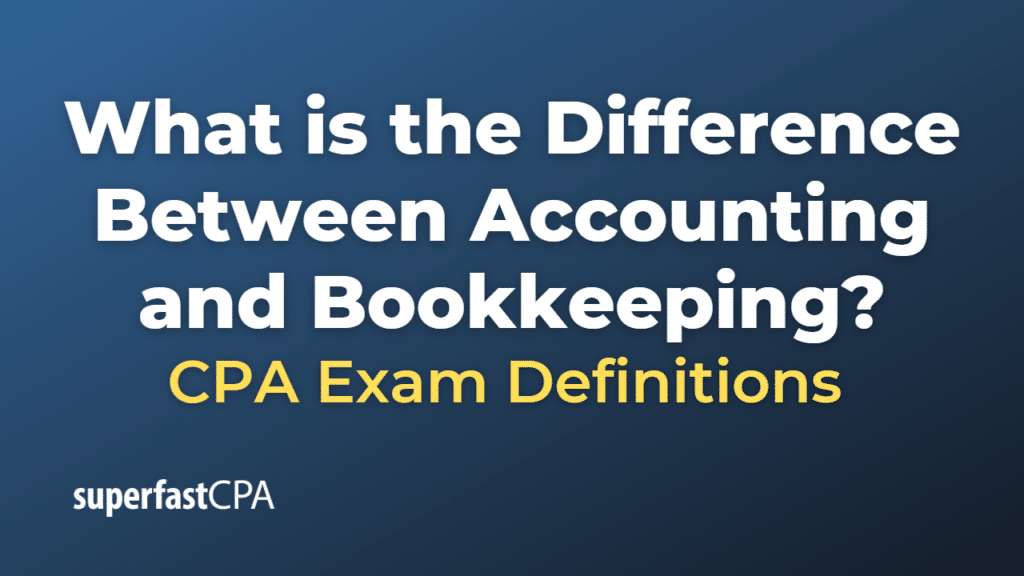Difference Between Accounting and Bookkeeping
Accounting and bookkeeping are two functions that are extremely important to any business, but they serve different purposes and require different skill sets. Here’s a comparison of the two:
- Bookkeeping involves recording daily financial transactions in a consistent and systematic way. This includes tasks like:
- Recording financial transactions
- Posting debits and credits (double-entry bookkeeping)
- Producing invoices
- Managing and balancing subsidiaries, general ledgers, and historical accounts
- Completing payroll
- Maintaining and balancing the trial balance
- Accounting is a high-level process that uses financial information compiled by a bookkeeper or business owner to produce financial models. Accounting is more subjective than bookkeeping, providing business insights based on the information from financial transactions. Accounting tasks include:
- Preparing adjusting entries (recording expenses that have occurred but aren’t yet recorded in the bookkeeping process)
- Preparing company financial statements
- Analyzing costs of operations
- Completing income tax returns
- Helping business owners understand the impact of financial decisions
- Business and financial planning, and strategy development
In summary, bookkeeping is more transactional and administrative, concerned with recording financial transactions. In contrast, accounting is more strategic, dealing with the interpretation, presentation, and application of financial information. Often in smaller businesses, these roles may overlap or be performed by the same person, while larger organizations will typically have separate individuals or teams handling these roles.
Example of the Difference Between Accounting and Bookkeeping
Let’s consider a small retail business to illustrate the difference between bookkeeping and accounting.
Bookkeeping:
Jane is the bookkeeper. Each day, she records all financial transactions that the business makes. This includes sales, purchases, income, and payments. She diligently enters each transaction into the company’s ledger using a bookkeeping software.
When the business receives invoices from suppliers, Jane records these in the system and ensures they are paid on time. She also handles the payroll for the business, ensuring all employees get paid correctly. At the end of each month, Jane balances the books and prepares a report showing all the transactions that have taken place.
Accounting:
Robert is the accountant. He takes the monthly report prepared by Jane and uses it to analyze the business’s financial situation. He prepares the income statement, balance sheet, and cash flow statement for the business, giving the owner a clear understanding of the profit or loss, financial position, and cash situation of the business.
At tax time, Robert ensures all the necessary financial information is included on the business’s tax return, and that it is submitted correctly. He also advises the business owner on tax deductions and credits that may be available.
Robert also provides advice on financial planning. For instance, if the business owner is considering opening a new store, Robert might prepare forecasts to estimate the expected income and expenses, and assess the financial viability of this decision.
In this example, Jane’s bookkeeping work provides the accurate, detailed records that Robert needs to perform his accounting role. Both roles are vital for the smooth financial operation of the business.













